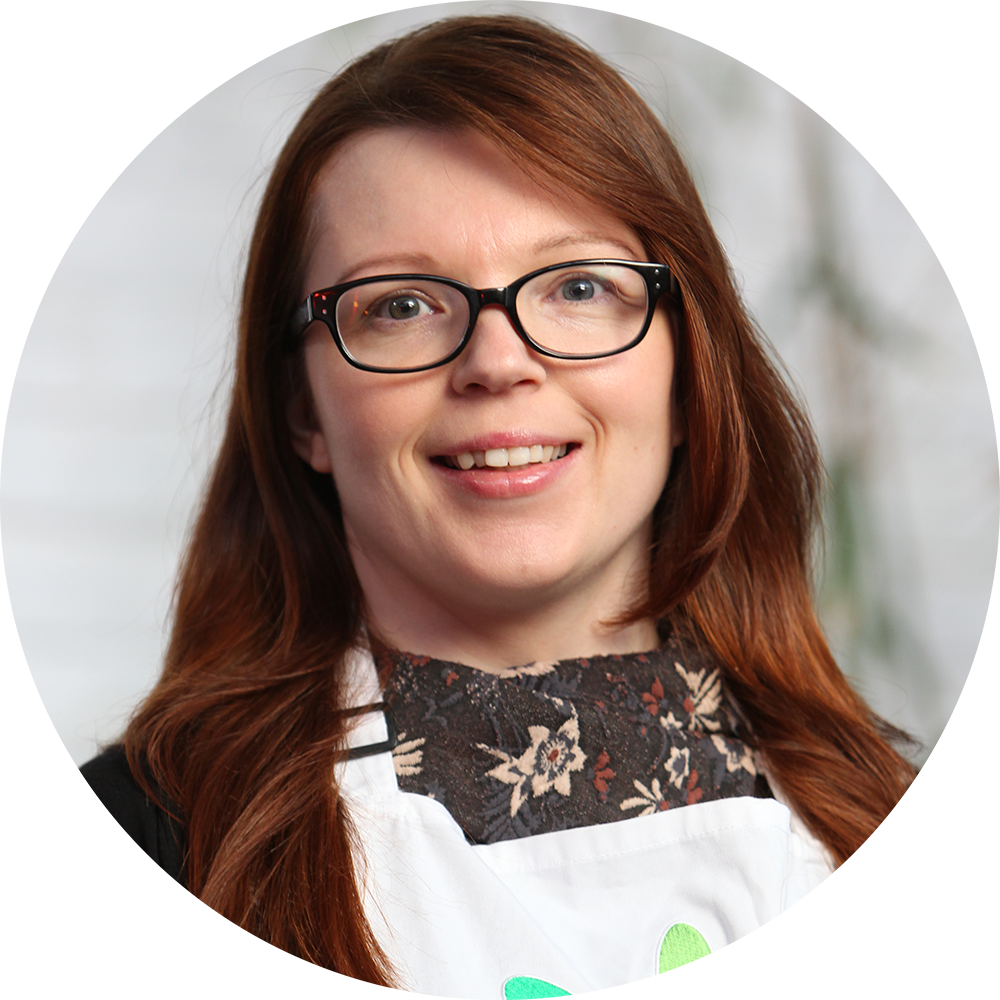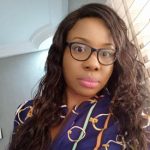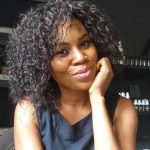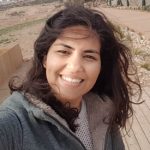In this regional focus on our graduates and students, we celebrate the achievements of five women organic skincare entrepreneurs in Africa. The continent is often in the spotlight of natural cosmetics’ formulators on account of its incredible, beneficial raw ingredients such as baobab and moringa oils and shea butter.
But while the beauty sector is familiar with Africa’s produce, we felt there was less known about organic skincare entrepreneurs in Africa. Among our students and graduates, we have some fascinating back stories to share of amazing entrepreneurs for whom Africa’s indigenous ingredients have a deep cultural resonance and significance.
In our interviews, we found out what motivated these five African women beauty entrepreneurs and also about the challenges they faced. We celebrate their successes and hope their voices inspire you to follow in their footsteps, whichever part of the world you are based in.
Our African skincare entrepreneurs
- Celestina Okere
- Halle Abi Apanpa
- Omole Olubukola
- Smile Onwughara
- Wissal Benmoussa
Over to our African skincare entrepreneurs to introduce themselves:
- Celestina Okere, founder of Natroyals: I am a Nigerian and I live in Lagos, Nigeria, West Africa. I am a human resource management professional. That was my role before venturing into natural skincare.
- Halle Abi Apanpa, founder of Halleabys Signature: I spent most of my early years in Nigeria as a child but I now live in Accra, the capital of Ghana in West Africa. I have an educational background in sciences and finally settled for building construction and interior decoration as a career path. I’m naturally keen on beautifying people and things and I chose my new career in natural and organic skincare also to allow me more time with my family.
- Omole Olubukola, founder of Ovelly Essentials: I am from the southwestern part of Nigeria but I grew up and currently live in Kaduna (Northern Nigeria). I hold a first degree in Estate Management and a Masters degree in Facilities management. I am a wife and mother of two boys. I have been in banking for 11 years and in natural skin care for about 4 years now.
- Smile Onwughara, founder of Purist Organics: I am from eastern Nigeria and before following a career in organic skincare, I was immersed in information technology.
- Wissal Ben Moussa, agriculturalist at Domainen Zaha: I live in Morocco, in the southern region in a little town on the edge of the western Sahara. I live on a family farm where we grow vegetables and herbs along permaculture concept lines. Before starting in the skincare business, I was an R&D technologist in food at a big firm for almost four years.
Q&A
Now that our African skincare entrepreneurs have introduced themselves, let’s dive into our Q&A!
What prompted you to get involved in natural skincare?
Celestina:
I had always planned to build a business that would help me break away from the 9 to 5. So. after exploring many options, I settled for makeup artistry, enrolling into a course.
I am naturally very curious and meticulous, so I started researching the products and the ingredients used in manufacturing makeup and was alarmed to find out that some ingredients used are harmful.
That revelation took me to another level of research into natural, healthier alternatives and that’s when I came across Formula Botanica!
Halle:
I discovered that skin bleaching and whitening was a norm for many women in my part of the world, and also that some engaged in mixing together illegal ingredients to achieve this effect. I became so worried that I began to search for solutions. In my quest for this, I came across Formula Botanica and registered for the International Organic Skincare Entrepreneurs Program.
Omole:
The quest for healthy skin using safe, non-toxic, natural products is the major reason I went into natural skincare. I had a very horrible experience using a cream laced with steroids and loads of harmful substances and got my skin damaged. My quest for repair and a natural way to solve my skin problems led me one step at a time into the exciting world of natural skincare and inspired me to found Ovelly Naturals.
Smile:
For over 10 years, I struggled with persistent face and body acne, unbalanced skin and had a lot of scarring. I would say my skin was basically a mess, and so was my body. My desire to find a solution became my number one goal. I wanted to help myself so I started researching. I made a few DIY products which worked, so I told myself “why not become a pro at this”? I wanted to make products for people who are dealing with sensitive, hyperpigmented and acne prone skin.
I also wanted to develop products that could reverse bleached skin (this is a big issue in my country). My mom bleached too and my product made her skin better. I have had just one purpose since my company was fully established – to provide all-natural, herbal and plant-based alternatives to traditionally used synthetic skincare. I want to contribute to creating a healthy cruelty-free cosmetics.
Wissal
I am food science engineer and part of my studies were at an agriculture science school: there, I became concerned about sustainability, green chemistry and biotechnology. Then I started eating organic and clean and developed a more holistic approach to all aspects of my life. I soon realised that buying products that would fit my ethics was not a simple task: either products were too expensive, subject to green washing or simply unavailable.
With a background in organic chemistry background, I started formulating my own products. From there, I grew a real passion for the skincare world and living on a farm, growing my own herbs and food, has helped me get closer to nature and see its power. I want to share this with people using phytochemicals from our own farm in a scientific manner.
How has studying with Formula Botanica changed your view of the beauty world?
Celestina
Studying with Formula Botanica is the best thing that has happened to me in my journey to natural skincare. The knowledge acquired, tutors, experience and the community are awesome. It made me realise that less is actually more and we can be unique in our various ways and contribute positively to our community and indeed the world with the small but steady steps and effort we put in doing things right with our own brands.
Halle
At the point of enrolling with Formula Botanica, I was ready to launch my skincare range but a few weeks into my studies, I discovered that I was far from ready.
During the course, new ideas began to unfold, my vision became broadened and clearer, I had a better understanding of what I wanted to do and the exact way to go about it.
I deviated from creating a skincare range with cream and lotions to producing an improved version of black soap. I realised that the soap found on the market was basically produced from potash and palm kernel oil. I formulated a better brand with coco pod husk, sweet almond oil, palm kernel oil, apricot kernel oil, neem oil, Shea butter and organic kale. In addition I have created different packages for different skin types and after three years with Formula Botanica, I am set to launch the skincare range I could have done wrongly way back.
Omole
Formula Botanica taught me the principles of natural skincare formulation, good manufacturing practices, branding, and labeling. The diploma course gave me a broad view and a global perspective. I am currently enrolling for the Advanced Diploma in Organic Skincare Science and of course I never fail to recommend Formula Botanica to lots of people who have enquired about the course from me.
Smile
I had Formula Botanica in mind for over two years. It was like a beautiful kingdom I’d like to visit! Joining Formula Botanica was one of the best decisions I’ve ever made. My company has a best selling product and it was fully developed using the experience I got from Formula Botanica. The school is backed by professionals and the community is really that kingdom I hoped for. Am glad I am a part of it!
Wissal
I soon realised that I need more knowledge in formulation and I started researching online, found Formula Botanica, and loved the scientific-challenging content and the sense of community. I started my studies not so long ago, and I love how we are not in a recipe kind of learning mode but that we are challenged to be creative and research on our own. Formula Botanica helped me start using the sustainable science to make outstanding ethical products.
What inspired you to start your brand and business?
Celestina
I am a very emotional person who hates to see people suffer. I was determined to search for and offer healthy options and make the world a better place and yet still help people achieve their beauty needs through natural skincare.
Halle
The strong desire for skin whitening in Africa had inspired me to create this beautiful new range which tones, exfoliates, deeply moisturises and brightens the skin naturally. I believe strongly that natural ingredients from our immediate environment can be used in creating beautiful products.
Omole
I wanted to fill the gap that exists where safe and healthy skincare is concerned.
There is a notion that lighter is better and as a result of this, a lot of women go to all lengths to lighten their skin using bleaching products that are damaging to their skin.
There is a need to educate more people about accepting and loving the skin they are in and choosing safe and healthy skincare products to help them achieve a healthy and radiant skin.
Smile
I started my company in search of good skin for myself and others and also for financial freedom, but also to create and develop products based on my experience as a professional and because I trust what I have made.
Wissal
My country and all the great phyto-aromatics that surround me are my inspiration. I am also inspired by the ancient beauty rituals of my grandmother who used local products in the simplest ways. I get a lot of motivation too from the indie beauty brands worldwide and how they are changing the beauty industry one green product at a time.
What drives you on in your business or skincare studies?
Celestina
The knowledge that I am making a difference to people’s lives and the environment and also fulfilling my desire to run my own business spurs me on. Helping people to take care of their skin, achieving their beauty needs in a healthier and safer manner is a key driving force.
Omole
With each passing day, I come across a lot of women with damaged skin from the use of toxic bleaching products and I get really concerned. I am driven and passionate about educating women on the dangers of these practices to deter them from going down that route. I have seen from experience that all skin tones are beautiful, and that all that is needed is the right nourishment for our diversity to flourish.
Smile
It used to be difficult for small companies to enter global picture, it used to be difficult to source good raw materials, it used to be difficult to be heard too. I am inspired knowing that I can confidently source best raw materials that are not easy to find Nigeria and have it imported. This inspires me to take my business further.
Wissal
Embracing what nature has given us, using in the best way all the phyto-actives that can care and heal us. I also want to create products that celebrate all Morocco’s amazing plants and make product of outstanding quality available at a good price. Because I also believe that the best way to preserve a species is to discover how to get added value from it and that then brings a need to maintain it, sustainably.
Tell us about the native African ingredients you love to use
Celestina
Shea Butter is one of the ingredients that is available in Africa and affordable too. Shea butter inspires my formulations because my grandmothers used it on us children while I was growing up. But I never knew much about it nor its inherent benefits until I studied skincare with Formula Botanica. When I am formulating with the butter, I feel the presence of my late grandma as my subconscious takes me back down memory lane to when she was using it to make products like balms, creams and even a syrup during my childhood days.
Halle
Ghana is richly blessed with natural butters and oils such as shea butter, cocoa butter, moringa oil, baobab oil, palm kernel oil, coconut oil, neem oil and lots more and I have fallen in love with working with all of these.
At the beginning of my studies, I withdrew totally from using neem on account of its physical properties but while searching for ingredients in my immediate environment in order to reduce importation, I discovered that neem oil is a rich and unique type of oil especially for our skin type in Africa. Outside of Africa, I appreciate peoples’ love of African black soap and natural skincare products at large.
Omole
I am a huge fan of unrefined shea butter and African black soap. The possibilities and variants of products that can be made with these two are endless! African black soap for instance can be customised to make various products; it just depends on what herbs, extracts or oils go into the formulation.
Smile
I love to work with turmeric and neem. There are a lot of raw materials from my origin that I use but these two are the star for me. They are must haves in our storage. I love using raw materials that can multi task as these two do.
Wissal
Morocco has a lot of vegetable oils and no butters in its land. This inspired me to formulate using only liquid oils for now in addition to waxes when needed. Of the vegetable oils, I love argan oil, barbary fig (prickly pear) seed oil, nigella oil and sweet almond. I absolutely put olive oil in everything I formulate: it brings sunny childhood memories.
I also use a lot of plant powders and extract (essential oils and waters) from endemic plants like blue tansy, rosemary, lavender and geranium. We also have locally one of the most interesting clays, the Ghassoul clay, and it has been my go-to shampoo for almost a decade now. With so much diversity, I am inspired everyday to make masks, sprays, cream and oils.
What are the biggest challenges you face as organic skincare entrepreneurs in Africa?
Celestina
The quest for whiteness (skin bleaching) is a major concern because that is what sells in my environment. Also, harsh government regulations and lack of support for SMEs are issues. Yes, all of the challenges are specific to my continent (Africa) and country (Nigeria) in particular as a developing economy. To help more beauty entrepreneurs where I live, I would want to see government take advantage of our natural resources by building processing centres to provide natural/organic skincare ingredients.
We have all the plants such as neem, sweet almond, moringa, turmeric, cocoa, and sesame among other amazing ingredients but none of them is processed in the country. Everything is exported and we buy processed products from the western world which is usually very expensive because of increasing forex rates. I also wish to see testing centres where formulators can go and test their products and less stringent regulations for natural skincare products and indeed SMEs. I would also love to see African women accept their skin colour and stop skin bleaching.
Halle
My biggest challenge as a beautypreneur is access to ingredients outside Africa. The cost of shipping and duty paid on these ingredients makes life very difficult. We also do not have a natural and organic skincare regulatory board in Ghana, so we have to personally educate people on our products usage and benefits. Once we are more beautypreneurs in Ghana, we can work hand in hand to build a reputable body and persuade the cosmetics’ arm of the Food and Drugs Board to give us a platform for recognition and acceptance.
Omole
We basically have some challenges peculiar to us in this part of the world. For starters, epileptic power supply brings about the need for private interventions which in turn increases cost of production and the end price of products. Local and international shipping fees are pretty high and discouraging at the moment.
Supplies of raw materials tend to be inconsistent in quality and quantity and hence I need to always be on the lookout for alternatives instead of sticking to a known and credible source.
There is also the challenge of the societal mindset of the average Nigerian woman. It has been a struggle getting the simple message of BLACK IS BEAUTIFUL woven into the minds of women and getting them off toxic skincare products.
Smile
Unregulated sales of skincare products especially the sale of skin lightening agents in my country is a big challenge, despite the fact that dermatologists have raised the alarm over the effects of the practice. This in some way has affected businesses like mine because what I promote is natural complexion maintenance.
Secondly, the need for skincare sellers to get professional training with schools like Formula Botanica is often not considered necessary. Some of my customers don’t care how it’s made, who made, where it was made and what was used. The hustle has become profit over purpose.
Wissal
One of the biggest issues we have in Morocco is the lack of a strong value chain in the natural beauty business. From the upstream to the downstream a beauty entrepreneur will struggle finding the right suppliers of materials. The lack of traceability, quality and GMP practices while producing the raw materials is really challenging. And you often find yourself surrounded by argan trees but not able to find an argan oil factory that meets your quality standards.
Tell us about your successes and the best aspects of running your beauty brand in Africa?
Celestina
The positive reviews from friends, family and customers who have used my products have been a great motivation for me because initially, I was nervous about making promises and my product not being able to deliver what is promised but I have been surprised. However, the best aspects of running my beauty brand from my base in Africa is knowing that I am making a difference and saving humanity/environment and being acknowledged by the people around me and gaining friendships with fellow formulators.
Halle
My brand of African black soap has been my greatest success so far. I created an improved and effective black soap branded as Beyond Soap and developed varieties such as honey-blend soap which is for dry skin, light skin blend and caramel skin blend which are also black soap for complexion maintenance. Recently I came up with black soap for hyperpigmentation and am launching a range which cares for major concerns like stretch marks, acne spots, wrinkles etc. I have been able to achieve this after taking Formula Botanica’s courses.
Omole
I love formulation; it makes me come alive! I get to explore, research and formulate products for women in Africa. The possibilities of what I can create are endless. I also love the fact that I am able to inspire other women to follow their heart and pursue their dreams. Watching Ovelly Essentials grow with each passing day and also getting to educate more women on the need for safe skincare is a daily success.
Smile
I am so glad I’ve developed natural skincare products that have proven to help men and women of colour to achieve healthy skin. This journey has been fantastic. And I am over the moon knowing I am a student of Formula Botanica. You’ll have no idea how I feel until you join. Think about it, how would you know what works and why?!
Wissal
I am still launching the first range so I’ll keep you updated how it goes. But my main concerns today are maintaining the quality I desire and also to run my business along the ethical lines I have imagined. I also want to gain local market acceptance of my indie brand.
Become a skincare entrepreneur
If you’d like to learn more about how to become an organic skincare entrepreneur and follow in the footsteps of these pioneering beautypreneurs, join us by signing up for one of our organic cosmetic science formulation courses.
Formula Botanica can help you on your way to starting the organic skincare or haircare business of your dreams. Try out our free sample class to see what it’s like to study with us.
FREE TRAINING
Learn how to become an
Organic Skincare Formulator
FREE TRAINING
How to become an
Organic Skincare Entrepreneur
FREE TRAINING
How to become an
Organic Skincare Entrepreneur
Leave us a comment

Kelly is Formula Botanica’s Student experience coordinator. She runs our very busy online classroom as well as our big, free networking group: the Skincare Entrepreneur Mastermind. Read more about the Formula Botanica Team.
































